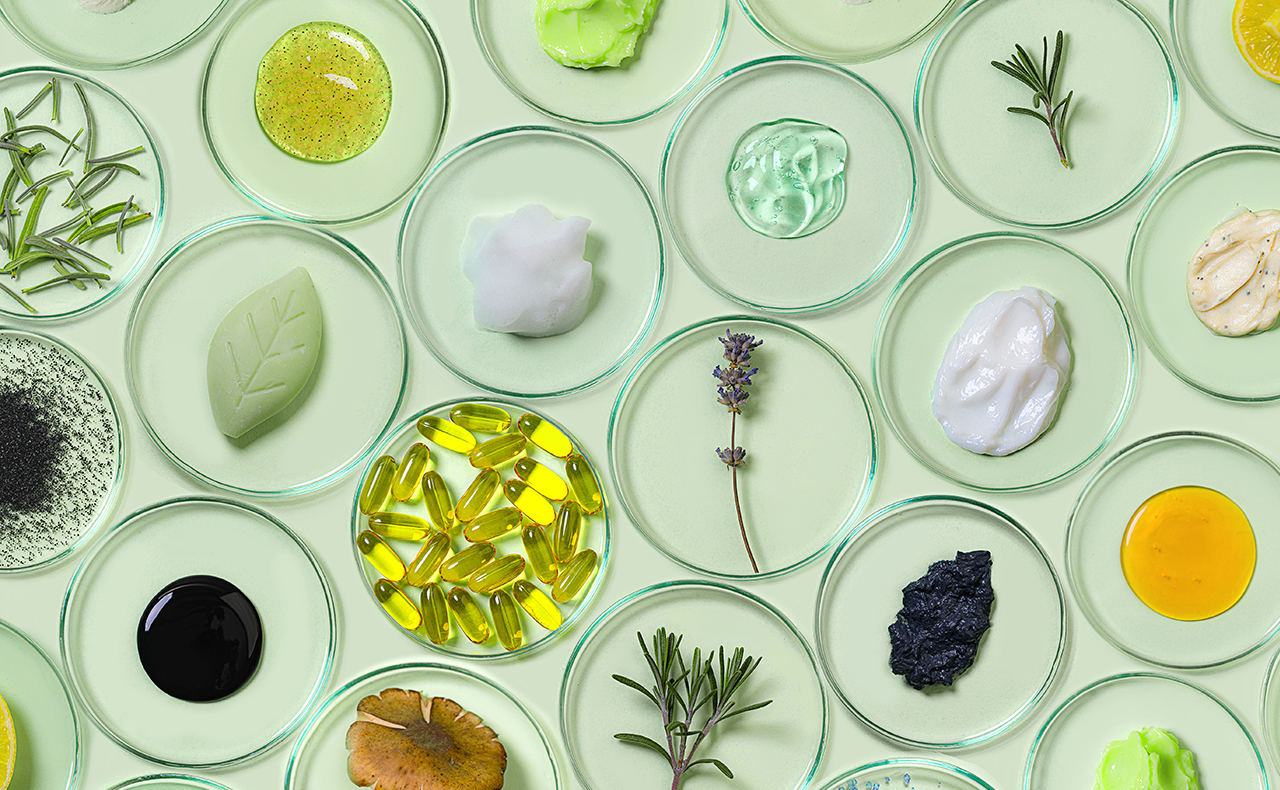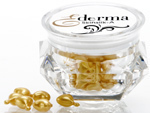Words by Raquel Lawrun.
It’s the big beauty face-off. In one corner, natural products promise toxin-free tradition. On the other, cutting-edge tech types say science is on their side. Green beauty might be having an ‘in’ moment right now, but the big question remains… is natural skin care really better?
The rise of green preening
There’s little doubt that the contemporary cocktail of work, parenting pressure, and a hectic lifestyle is driving a global craving for products that nurture wellbeing as well as beauty. Amidst media reports about the dangerous chemicals that surround us, women on the hunt for better health are no longer blithely reaching for mascaras without a care beyond fullness and definition. The chemical-conscious now want to know what’s in their beauty staples. And where it came from.
In this climate of environmental and chemical awareness, a recent report by beauty research group The Benchmarking Company revealed a lean towards green. 64 per cent of shoppers say they don’t want chemicals in their skin care and 27 per cent think synthetic beauty ingredients are harmful.
But is natural skin care actually better?
One perception fuelling the demand for plant-based products is that natural is better for us. But not all experts agree we should lay down our synthetic superceuticals. Joe DiNardo, a leading US toxicologist and researcher behind hi-tech skin care lines like Priori, says, “The chemical industries actually started developing synthetic molecules to purify and strengthen natural compounds.” But what about their safety? “The first rule of toxicology is that everything is toxic at the right exposure level,” DiNardo argues. “There are numerous toxic materials that are natural. [For example,] cyanide is natural and can be found in many different types of plant pits and seeds.”
Edyta Stelmach, a chemist and formulator of retinol skin care range Ederma, agrees that natural isn’t always a synonym for ‘safe’ or ‘gentle’. “A lot of natural products do not contain certified organic ingredients; they may contain many impurities that can cause skin irritation,” she says. “People don’t realise that natural ingredients can also cause irritation. Sandalwood, lavender and natural fragrances are known to cause irritation and a lot of the natural oils can block pores in acne-prone skin and cause irritation in sensitive skin.”
Good science, bad press?
Many believe test tube beauty gets an unduly bad rap. “Good science is usually compromised for a good story,” DiNardo says. “There have been many news stories that [have left] out minor details.” He notes that one news report linking titanium dioxide to cancer caused widespread panic, even though it was based only on occupational studies. Remember the rise of natural deodorant? “[All this study] means is if you breathe high levels of pure titanium dioxide in an industrial setting for 8 hours a day for 20 years, you ‘may’ have a problem,” he says.
“Just because ingredients are synthetically manufactured does not necessarily make them harmful,” adds Edyta. “Often the manufacturing process to make these excipients eliminates a lot of impurities,” she says. “I think a lot of the negative perception of synthetic ingredients is due to the smear marketing campaigns of the natural skin care movement.”
The natural perspective
Will Evans, technical director of The Purist Company, the manufacturer of natural brand A’kin, disagrees. “Toxic chemicals are a very real thing. Even if it’s in minuscule amounts, they are forming part of the chemical load. Safety is a very important thing, particularly when people consider their children.”
Evans believes the apparent increase in skin sensitivities and allergies is caused by chemicals. “When synthetic ingredients are chemically processed they are reacted with something else synthetic and this virtually always produces a by-product that creates impurities. These impurities are toxic or irritant,” Evans says. “And they’re not on the label because it’s not required.”
About labelling
Cosmetic manufacturers are required to list all ingredients in descending order of volume, except incidental ingredients like by-products. “You don’t have to mention anything about formaldehyde on the label because it’s on the incidental ingredient list,” Evans highlights. “And it’s in lots of shampoos.” Ingredients in volumes less than one per cent are listed in any order after these, giving rise to a practice called ‘dusting’. Evans explains: “People want to buy natural products, so the big companies are getting on the bandwagon by taking chemical formulas and adding some herbals to them in minuscule amounts.”
Fake naturals
‘Greenwashing’ is the name given to marketing largely synthetic products around natural ingredients, even though they may only be naturally derived or in tiny amounts. There is a huge grey area between natural pure breeds and hybrids, and a lack of regulation means brands can bandy around the word ‘natural’ on labels. It’s easy to see why 61 per cent of women reported to The Benchmarking Company that they have trouble identifying natural beauty products.
Evans says people who want purely natural products should research the company behind their buys. “Is it a company that has just seen a marketing opportunity around naturals, or is it a company that takes it seriously? Call them up, ask a sticky question and see if you get an answer or just get fobbed off,” he recommends.
Beauty smarts
With so much to consider, a degree in toxicology could soon replace the humble compact mirror as the must-have make-up accessory. But we suspect you don’t have time, so whether you’re hi-tech, hippie or a bit of both, take a look at these links to do your research:
• Trawl the world’s largest searchable database of cosmetic ingredients – the Environmental Working Group’s Cosmetic Database – for product, ingredient and company safety profiles
• Visit The Campaign for Safe Cosmetics online for more on the argument against suspected toxins
*This article has been updated since its original publication.






Like any debatable issue, this comes down to the individual.